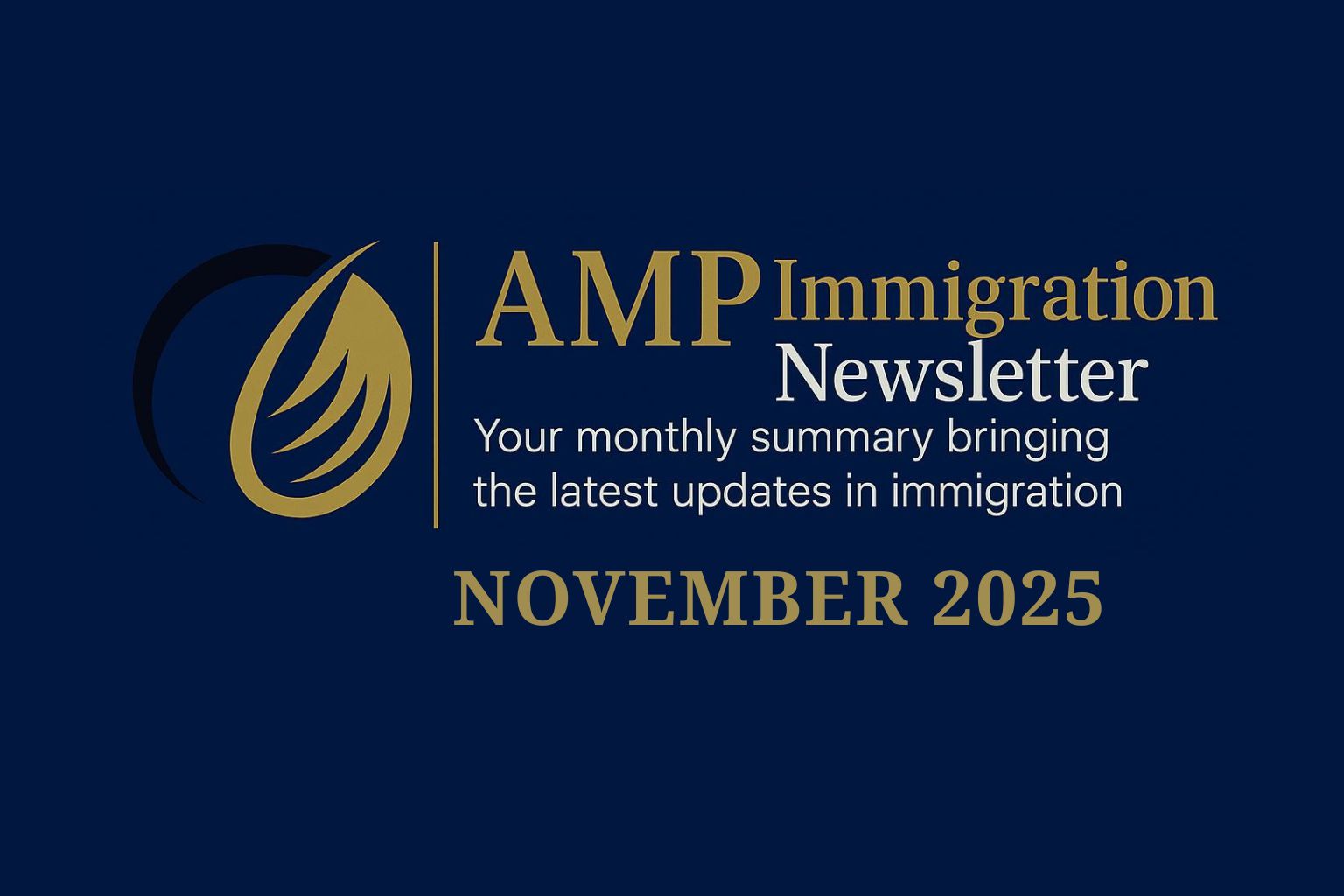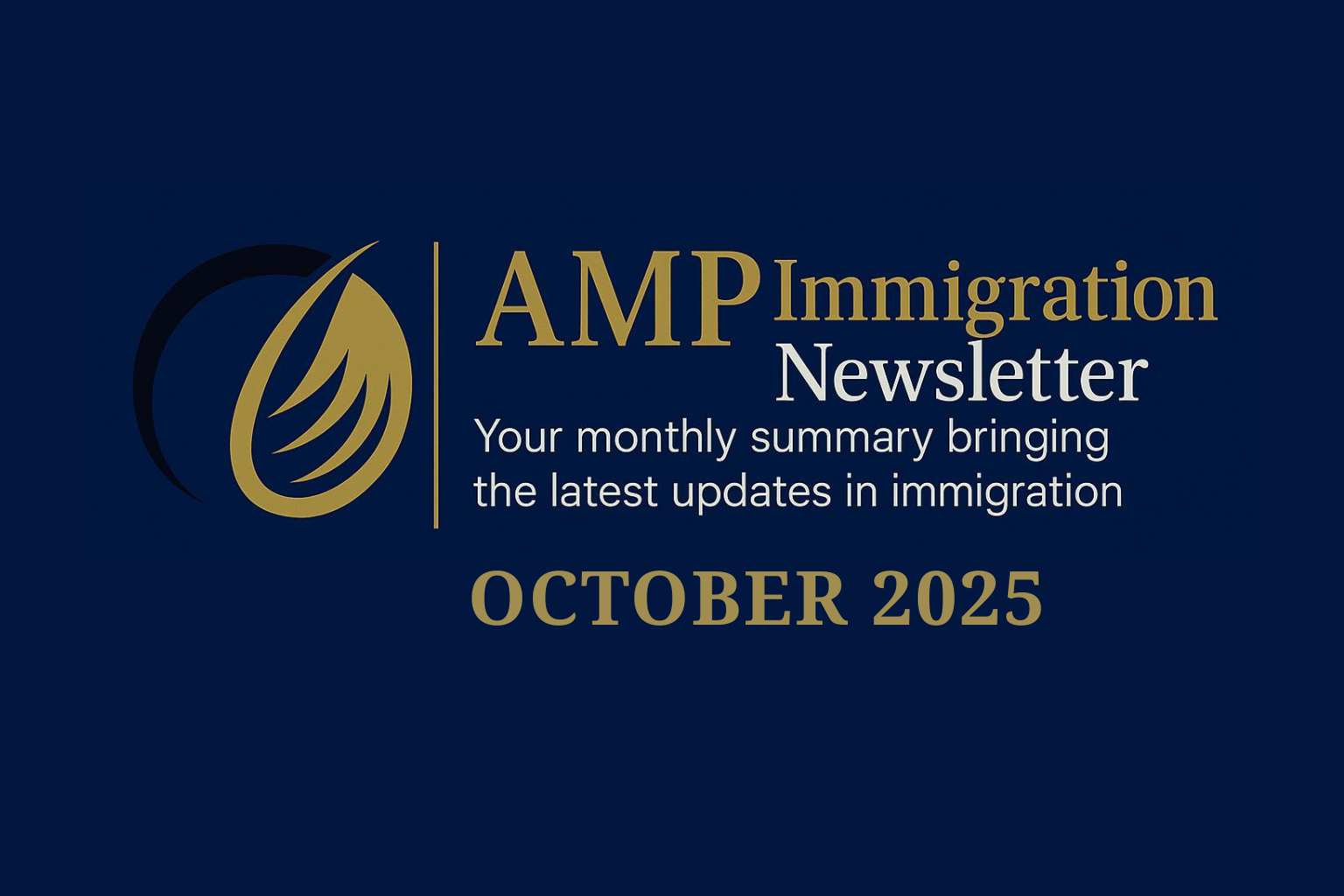
Family Reunification Parole – or FRP – is a process to benefit nationals of Cuba, Haiti, Guatemala, Colombia, El Salvador, and Honduras, who have a pending I-130 petition for alien relative. The process allows certain beneficiaries of an I-130 petition to come to the United States pursuant to a grant of parole, as opposed to having to wait out of the United States for the often lengthy wait times. Once the individual enters the United States pursuant to the parole document, s/he is eligible to apply for employment authorization. The parole will generally be granted for a period of up to 3 years and may be eligible for renewal.
Once an I-130 application filed by a Lawful Permanent Resident (LPR) or U.S. Citizen (USC) is approved, the Department of State’s National Visa Center (NVC) will decide to whom it will issue a letter of invitation to apply for the parole process. It will make this decision on a case-by-case basis, taking into consideration its capacity and the length of wait time left remaining before it will be possible to immigrate to the United States pursuant to the I-130 petition. Presumably, the longer the wait out of the country, the more likely it will be that an invitation for parole will be extended.
To be eligible for this parole, the petitioner of the I-130 application must reside in the United States and the beneficiaries must reside out of the United States. The principal beneficiary must be a national of either Cuba, Haiti, Guatemala, Colombia, El Salvador, or Honduras, but does not have to reside in one of those countries so long as s/he resides outside of the United States. The nationality of the derivative beneficiaries is not pertinent to their eligibility so long as the principal beneficiary can establish nationality from one of the qualifying countries. Each person intending to enter the United States pursuant to parole must have a valid, unexpired passport.
To apply for this parole, the petitioner must first receive an invitation letter that will be sent by the NVC. Make sure that the email address and mailing address that is on file with the NVC is up-to-date (use this webpage to update your information). You will have 12 months from the date of the invitation letter during which to submit Form I-134A. The invitation letter will identify the I-130 beneficiary and any derivative family members that are eligible to apply for the parole process. Once the petitioner receives the letter, the petitioner must initiate the process to bring his/her family members into the United States by filing online Form I-134A. Keep in mind that there are no age limits for principal beneficiaries, but any derivative beneficiary children must be under the age of 21 at the time the I-134A is received.
The I-134A application must be completed online; paper filings are not accepted. A separate application must be filed for each family member that intends to come to the United States, but it can all be done under one single USCIS account, listing additional family members as travel group members. No fee is required. If a new derivative beneficiary has been added since the time of the I-130 application (such as through the birth of a new child) and their name is not listed in the invitation letter, you may still file an I-134A on their behalf if you submit the necessary proof of relationship and eligibility. The I-130 petitioner must initiate the I-134A process and submit proof of financial ability to support those intending to enter the United States. If additional income or assets are necessary to prove financial ability to support, it is permissible to have additional sponsors who can combine their income and assets for financial support.
Processing times for the I-134A will vary and inquiries about a case are not currently accepted unless it has been processing for more than six (6) months. Once the I-134A is accepted and processed, USCIS will send an email to the beneficiaries with instructions about how to create an online myUSCIS account to submit biographical information and attestations. It will be necessary to undergo a medical examination and certify that all necessary vaccinations have been received. In reviewing the background of applicants, persons from Colombia, Guatemala, El Salvador, or Honduras will be disqualified if it is determined that they have an illegal entry to the US after July 10, 2023, or were interdicted at sea by the U.S. Coast Guard after July 10, 2023, or were ordered removed within the previous 5 years, or are inadmissible due to a prior removal order. These same disqualifications do not apply to Haitian or Cuban applicants, and instead will only be considered in a discretionary determination.
Once all information is completed online, the myUSCIS account will be updated with information about how to download the CBP One mobile application. Using the mobile app, the beneficiary applicant must upload more biographical data and a photo. Once complete and reviewed, Customs and Border Protection (CBP) will provide online notice to the applicant about its decision of whether or not to issue authorization to travel to the United States. Once authorization to travel is issued, the applicant will generally have a 90-day window in which to enter the United States pursuant to the grant of parole. A one-time extension of the 90-day parole period may be granted, at the discretion of CBP, but it must be submitted no more than 30 days before, and no more than 30 days after, the expiration date of the original parole period.
In order to enter the United States with the advance travel authorization, it is necessary to fly in a commercial plane to the United States and be inspected by CBP at an internal port of entry. Travelers will not be processed for this method of parole at land ports of entry but will instead be denied entry. Once you arrive to the internal port of entry, you will undergo additional screening with CBP (including fingerprint biometrics) who will make the final decision to parole you into the United States. Derivative beneficiaries will only be allowed parole into the United States once the principal beneficiary has been paroled into the United States.
Once you have been paroled into the United States, you are eligible to apply for employment authorization under category (c)(11). If you want to temporarily leave the United States, you must first obtain an Advance Parole Document by applying with Form I-131. Remember that once you enter the United States and remain for longer than 30 days, you must update your address (https://www.youtube.com/watch?v=MoObatBGRLk) with USCIS anytime you move.
If your visa number becomes current while you are lawfully in the United States pursuant to an authorized parole entry, you may be eligible to adjust your status to a Lawful Permanent Resident. Remember that any violations of your parole or an overstay of any authorized period of parole may have negative consequences for your immigration case.
Cuban And Haitian Parole
Prior to August 11, 2023, Cuban and Haitian nationals could benefit from a parole process different from that explained above, which instead utilized Form I-131 and required an in-person interview. However, as of August 11, 2023, Cuban and Haitian nationals will now use the process set forth above to apply for parole, which involves filing Form I-134A and does not require an in-person interview. If a Cuban or Haitian national already initiated the process using Form I-131, the NVC will send the applicant a letter to explain how the case will proceed.
Most parolees will not be eligible to adjust status to a lawful permanent resident, unless and until their immigrant visa number is current. However, Cuban parolees may be eligible to adjust under the Cuban Adjustment Act a year after entry.
Sources:
- https://www.uscis.gov/faq-family-reunification-parole-processes
- https://www.uscis.gov/FRP
- https://www.uscis.gov/save/saveresources/information-for-save-users-cuban-haitian-entrants
- https://www.uscis.gov/humanitarian/humanitarian-parole/the-haitian-familyreunification-parole-hfrp-program
- https://www.govinfo.gov/content/pkg/FR-2007-11-21/pdf/E7-22679.pdf
- https://www.uscis.gov/humanitarian/humanitarian-parole/the-cuban-family-reunification-parole-program
Last Updated: 9.10.2023 (*Note That Immigration Rules, Regulations, And Practices Change Frequently. Make Sure To Check For Updated Information Since The Posting Of This Article.)
FEBRUARY 2026 NEWSLETTER
Protests in Response to ICE Misconduct (Protestas en…
Published on 01 Feb, 2026
DECEMBER 2025 NEWSLETTER
Challenges for Refugees and Asylees Continue (Continúan los…
Published on 01 Dec, 2025
NOVEMBER 2025 NEWSLETTER
Annual Asylum Fees Currently Stayed in Court (Las…
Published on 31 Oct, 2025
OCTOBER 2025 NEWSLETTER
Government Shutdown (Cierre del Gobierno) EN: Congress…
Published on 01 Oct, 2025




